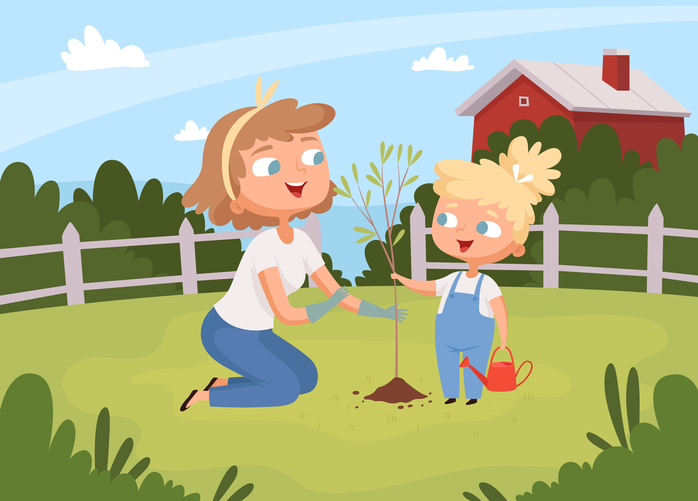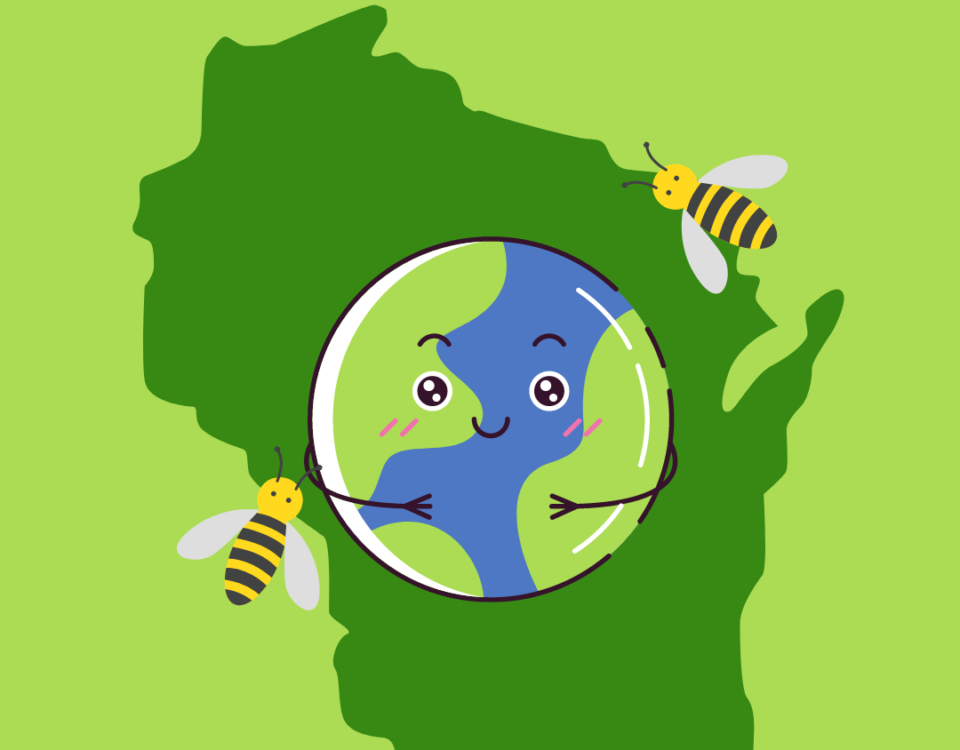- All-In-One Beekeeping for the Bees
- +1-608-728-8233
- info@beepods.com
A World Apart: Traditional Beekeeping in Macedonia

Hatidze in the darkness of her house.
A World Apart
I’m curious if I was the only one who was incredibly uncomfortable watching Honeyland, a documentary that won big at Sundance this year. Filmmakers Tamara Kotevska and Ljubo Stefanov present the story of Hatidze Muratova, an aging woman with a dying mother living in rural Macedonia. It deftly shows life a world apart and the beauty of traditional beekeeping in the modern world.

Hatidze plays with the children of her new neighbor’s.
This is a story with dynamic characters, conflict, and an arc to follow. It is a dark fairy tale, a modern “Hansel and Gretel” to whet our appetite for mesmerizing conflict. Whether a documentary should view like a fable can certainly be up for debate. But I’m not in the business of deciding whether human life can be magical or not.
The film opens with Hatidze making the trek from her modest stone home to a wild beehive nestled into a nearby mountain. She has no running water or electricity and travels on foot. This film is accompanied by the sounds of nature: buzzing bees, lowing cows, and the barks of her loyal dog.
There is no question of mood.

Hatidze travels to a nearby hive to harvest honeycomb.
Establishing the Protagonist
One of the first scenes shows Hatidze berating her decrepit mother to straighten her legs so she can eat more easily. The filmmakers establish a harsh tone immediately, whether it’s through voice or behavior. This scene is a reflection of the side effects of abject poverty, the context for the story we see on the screen.
Violence in voice or in action comes out of the inertia of struggling to survive and the documentarians evoke this with panache.
Hatidze’s voice is different than the voices of the family we meet soon after. There’s a gentleness to her firm touch with her mother, minutes later offering to help her out of the house so she can sit in the sunshine. It’s obvious early on, Hatidze’s sometimes assertive approach is just her way and reflects her confidence in herself.
We see the desolation in their living situation with her mother barely able to move and Hatidze caring for her daily. She dresses an oozing wound on the side of her face, one that likely requires medical attention we take for granted living where we live. The circumstances of their life are a world apart from what we know in the United States.
Beekeeping is her livelihood and she conducts her relationship with the bees in harmony, a mutually beneficial situation. One of the more striking scenes shows Hatidze gently siphon a bee from a pool of water onto a leaf, carrying it to safety. She values each bee as an essential component of the whole hive.
A Conflict Across the Road

A bee buzzes above a pool of water.
Her approach is a stark contrast to the neighbors who soon move in across the dirt road from her house. We see them interact roughly with their cattle herd, immediately noticing a different approach to animal husbandry than Hatidze’s.
Also of Turkish origin, this family notices the protagonist’s apiary and asks a seemingly innocent question about the profits she garners from it. In the next scene, we watch as the family unloads commercial hives from the back of a truck.
The juxtaposition between Hatidze’s approach and her neighbors is readily apparent and painful to watch.
We watch as nearly every one of the family’s young children sustains stings from the agitated bees. The audience bears witness to the father verbally abusing his children and the whole thing views like inescapable chaos unfolding.
Hatidze tries to intervene, specifically telling the patriarch of the family to be careful how much honey he harvests. She knows when bees are deprived of too much honey, they will attempt to poach it from a nearby hive. Her neighbor’s focus on clumsily obtaining a profit, to the detriment of their own family’s wellbeing, has a foreseeable impact. Hatidze’s bees largely perish.
Rising Conflict in Rural Macedonia

Hatidze notes the importance of leaving honey for the bees.
The documentarians don’t hide anything from us. We see how events will unfold before they happen, but it doesn’t reduce the impact the events have when we watch them in real-time.
Hatidze’s frustration is palpable as she makes futile attempts to get her neighbor to see beyond his own desperation for monetary gain. She attempts to show him there is another way.
He doesn’t see the value in her words and we repeatedly hear Hatidze express reluctant acceptance of her neighbor’s inability to see outside of himself. Her acknowledgment we can’t control the actions of others, despite our best attempts is a credo for the film.
We watch as the family’s lack of care and attention leads to a staggering amount of deaths in their cattle herd. It’s awful to watch as they drag limp bodies across the dirt road to dispose of the carcasses, arguing about whose fault it was. Yet, we remember the wisdom of Hatidze: people will do what they do.
A particularly moving scene shows Hatidze on a nearby hill in the twilight, watching as her neighbor burns an old juniper tree to the ground. He claims it’s to increase grass in the area as Hatidze makes futile attempts to get him to see the value of a well-established juniper tree. There are other ways to meet his objectives, as far as she’s concerned.
The symbolism is there: valuable traditions can be carelessly burned to the ground with the strike of one match.
The Destruction Left Behind

Hatidze watches as the old juniper tree burns.
Eventually, the neighbors pack up their caravan and leave the area, destruction in their wake. It’s a clear juxtaposition as we see Hatidze approach her animal husbandry with gentleness, singing to her bees as she tends to them. Her neighbors attempt to extract everything out of the bees before leaving empty hives to deteriorate in the winter snow.
Your heart breaks for the protagonist as we watch her world crumble; her mother passes soon after, leaving her to bury her only human companion. The bees: destroyed. It’s an obviously lonely existence and we wonder what will become of her.
However, as we watch Hatidze sing her mother to her final resting place and share chunks of leftover honeycomb with her canine companion, we trust she will find a way. She will survive. Though her techniques were traditional, they enabled her to feel a deep connection with her surroundings. We see the benefit of this approach for our very souls.
The message is clear: the way we approach the world, the landscape we inhabit, the living creatures we interact with matters. While fostering respect for living things comes with fewer yields, less monetary gain, it keeps us grounded and held by the land on which we live.

Hatidze in the darkness of her house.
Lessons Learned
In comparison with her unruly neighbors, Hatidze carries a quiet peace with her everywhere she goes. She is not hardened by the world. She is not angered by the stings of bees. Her ability to find joy and softness in the face of adversity is a lesson we can all learn to live by, even if we live a world apart.
We don’t have access to the hundreds of hours of footage the documentarians took and don’t know if the tensions in the film existed so palpably in real life. Yet, I can’t imagine Hatidze to be anything other than what she was shown to be and that’s what makes this film beautiful. It’s a testament to what inner fortitude looks like in an ever-changing world.
If you’re interested in learning more about modern beekeeping, check out our system.
For reference:
See also:
Caitlin Knudsen
Latest posts by Caitlin Knudsen (see all)
- How to Change Your Students’ Lives With Project-Based Learning - November 20, 2020
- Watch The Pollinators to See How We Can All Choose to Change Agriculture - November 13, 2020
- 6 Cold Weather Feeding Tips You Have to Know - November 6, 2020



